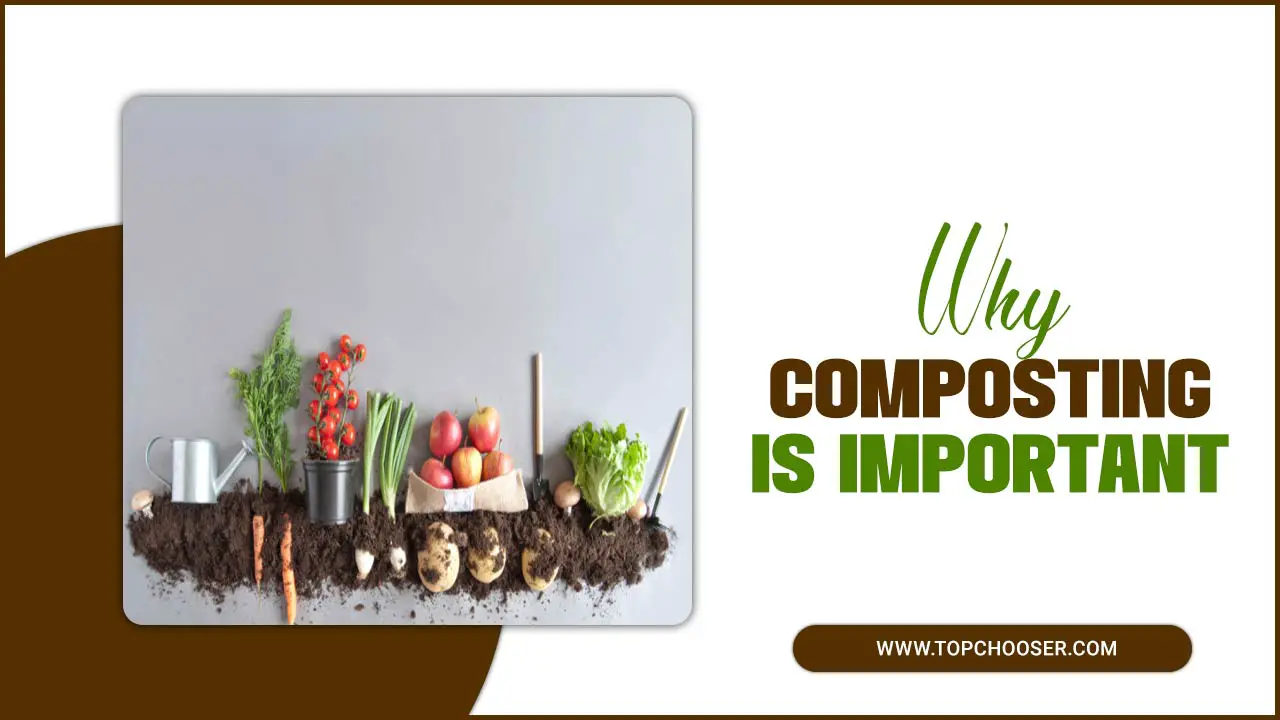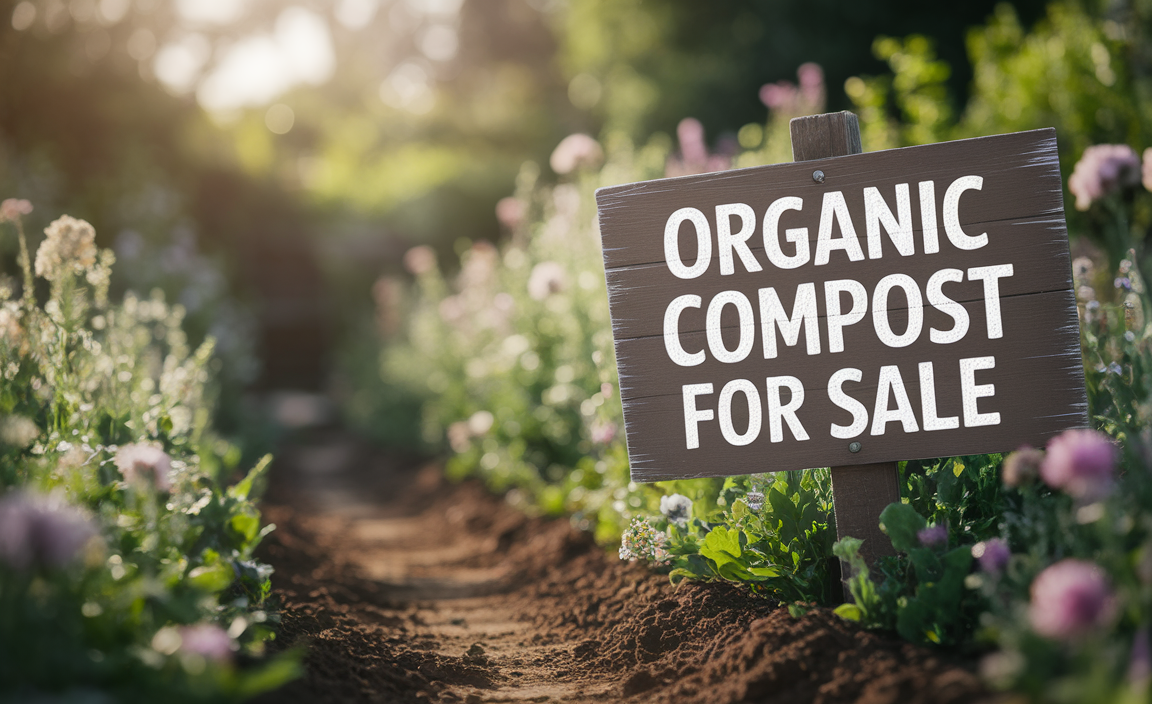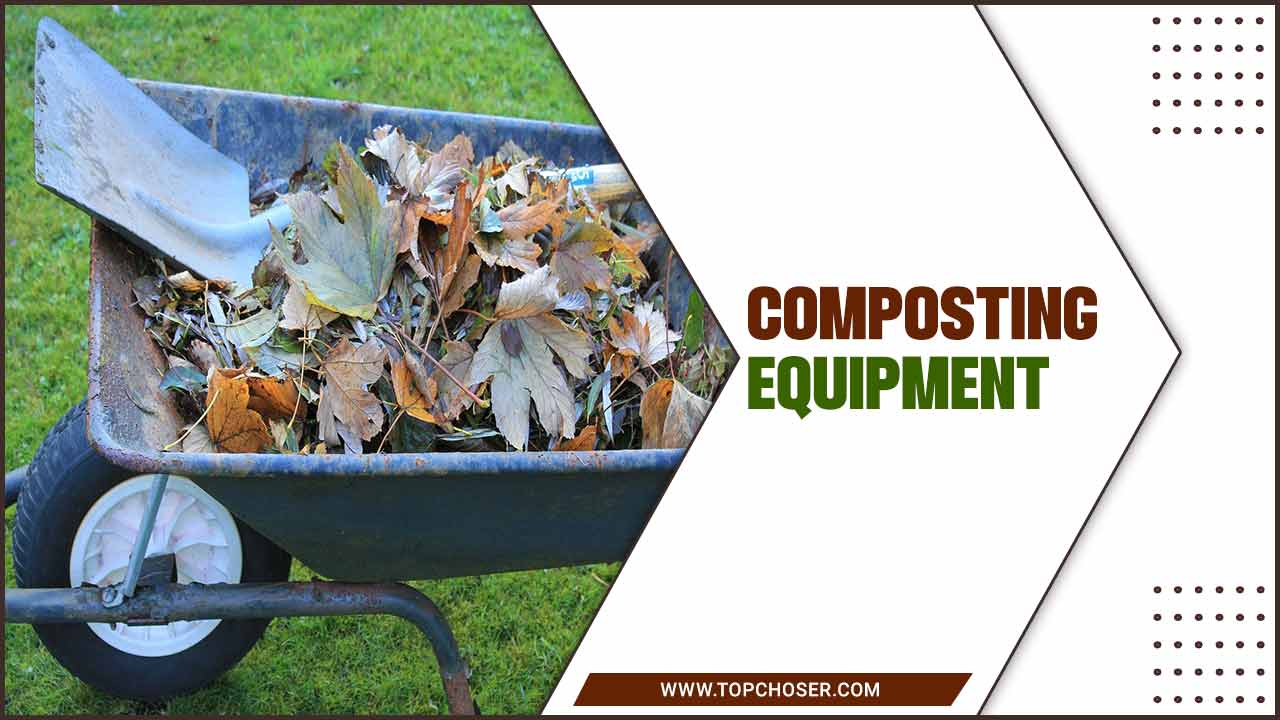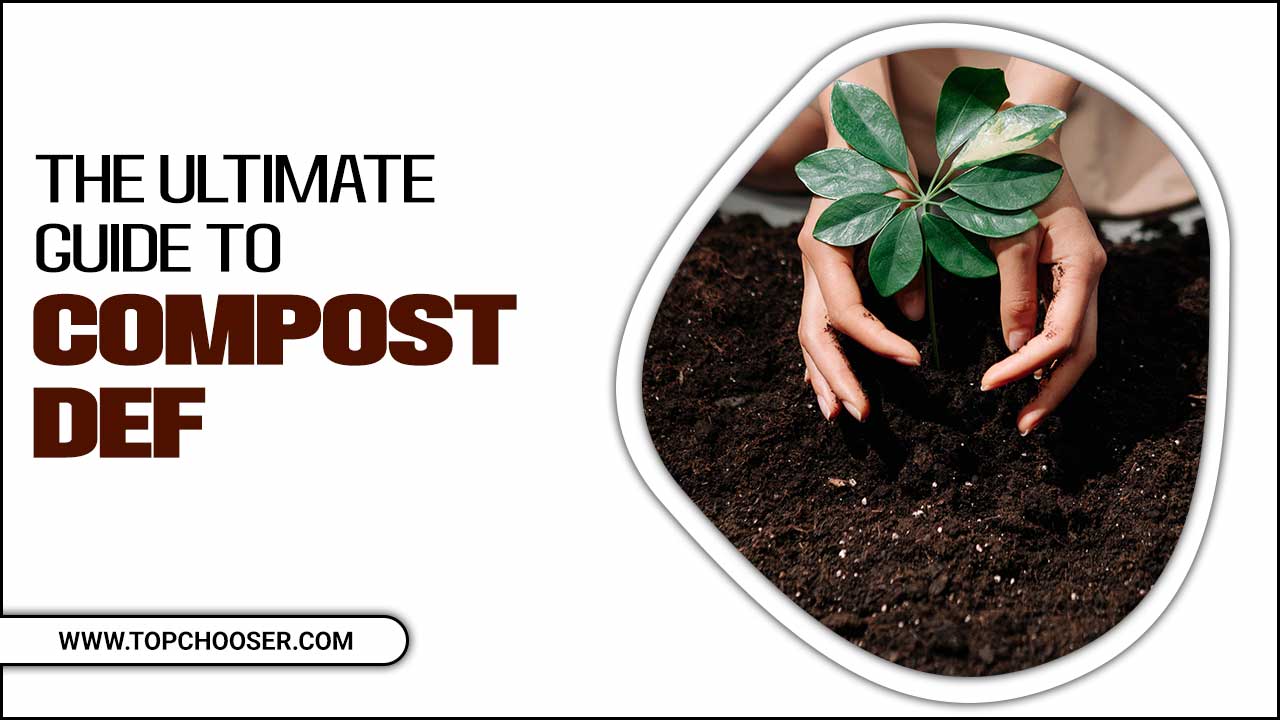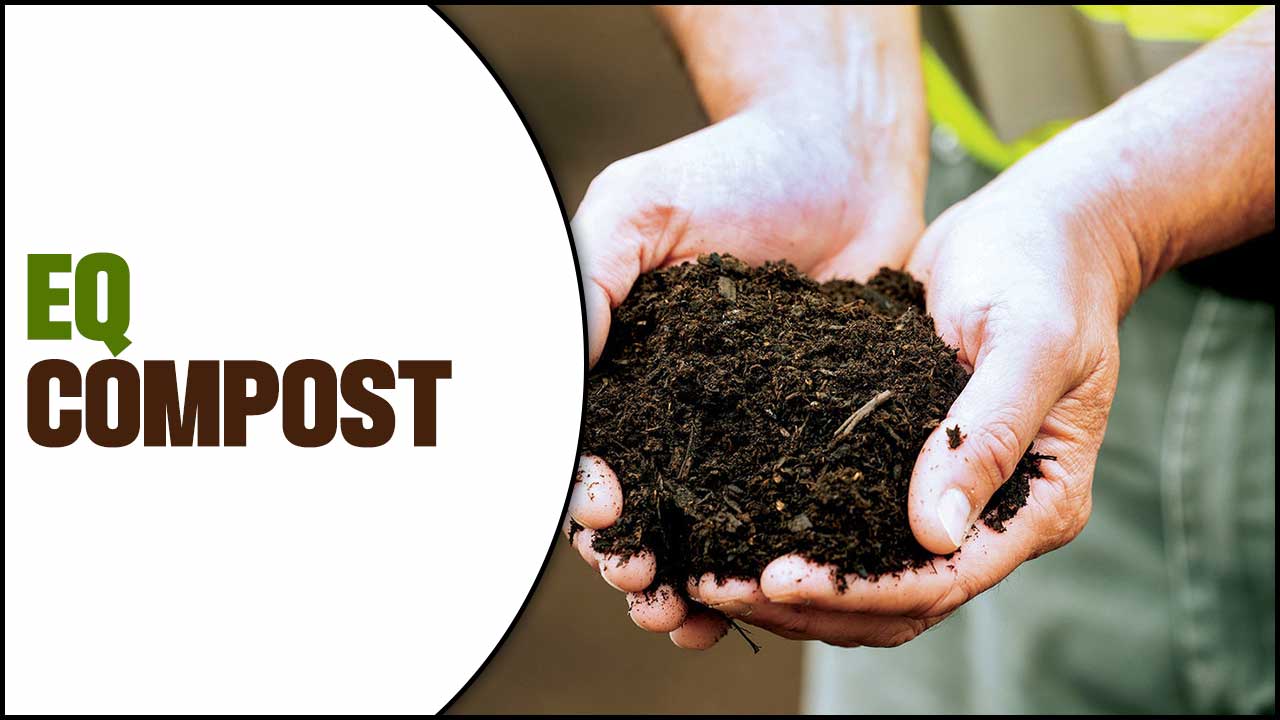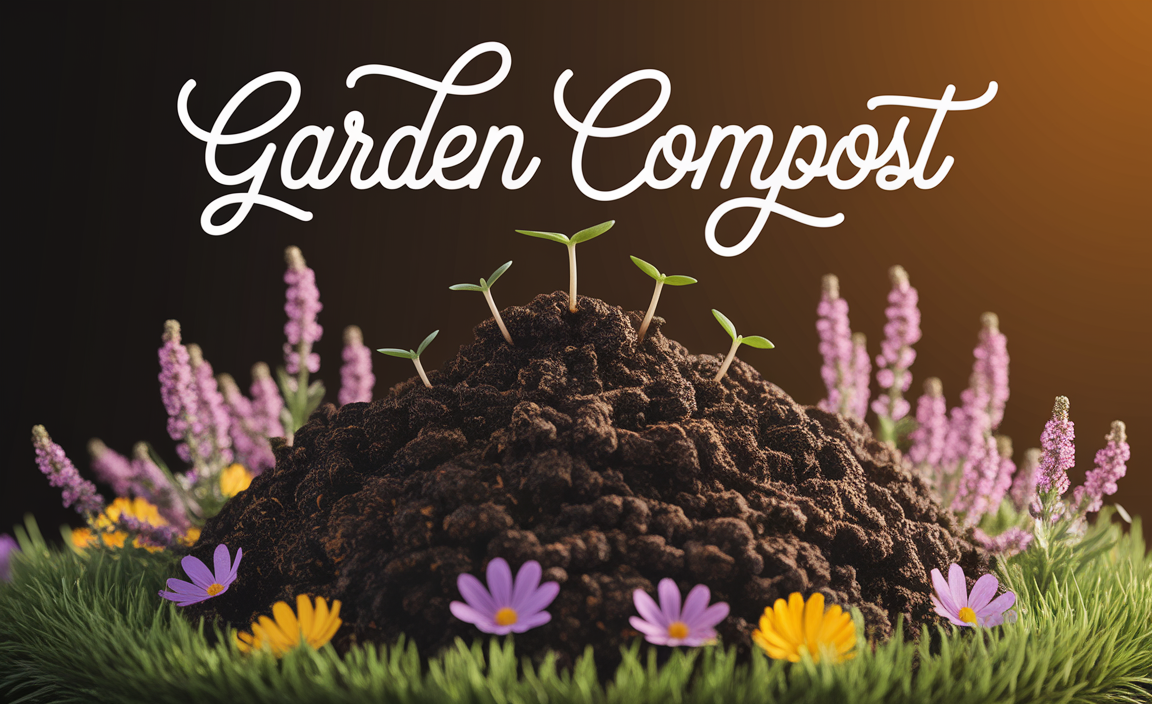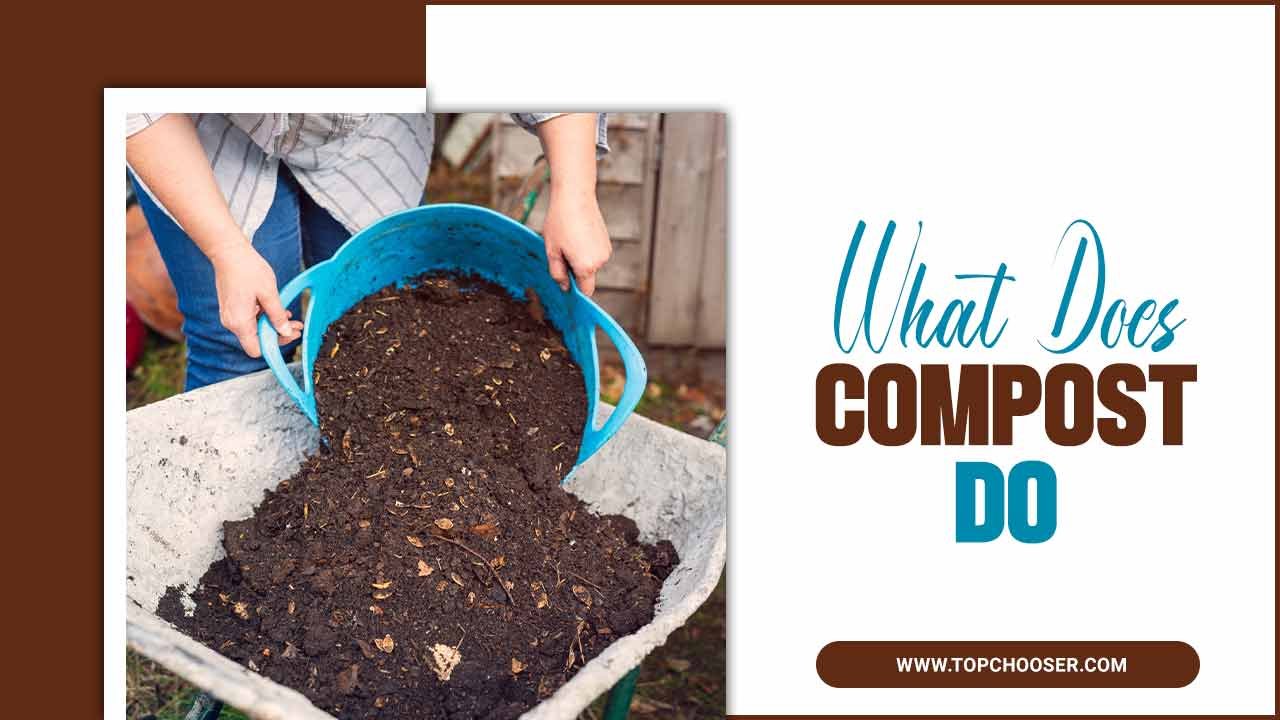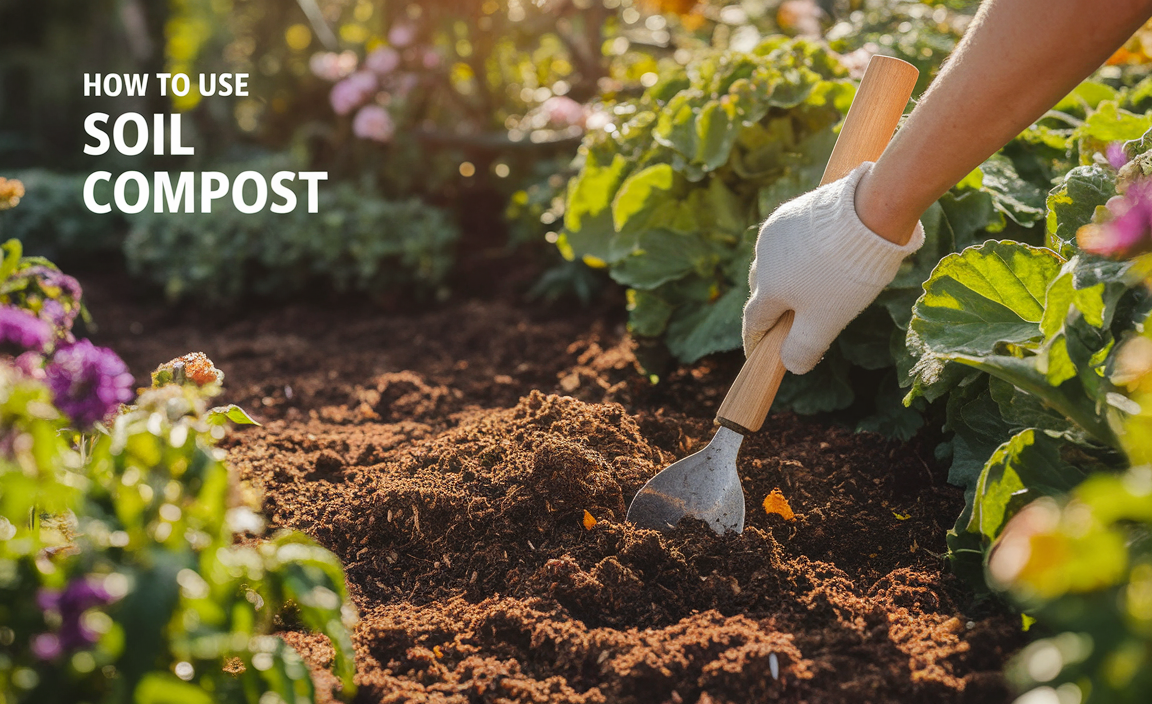Composting creates organic compost, a mixture of organic matter like leaves, food scraps, and manure. To compost, you break down organic matter into nutrient-rich soil that can improve soil quality.
Plant growth and soil fertilityIf you’re looking to unlock the mystery behind this sustainable gardening practice, you’ve come to the right place. Here we will delve into organic compost and how it can benefit your garden. We’ll explore different organic composting methods, such as aerobic, anaerobic, and vermicomposting.
Additionally, we’ll provide step-by-step instructions on how to start your organic compost pile, including selecting the right materials and maintaining them properly. Furthermore, we’ll discuss how to use your finished compost in your garden and highlight its many benefits.
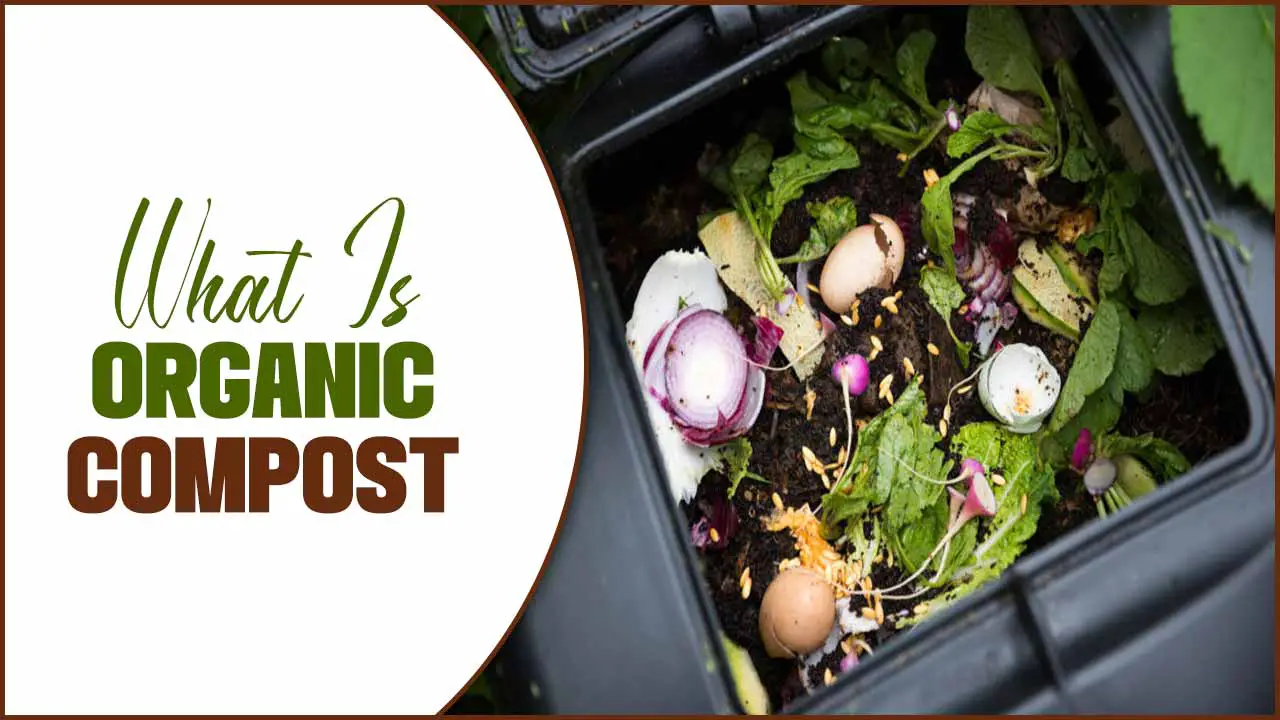
What Is Organic Compost? The Revealed Answer
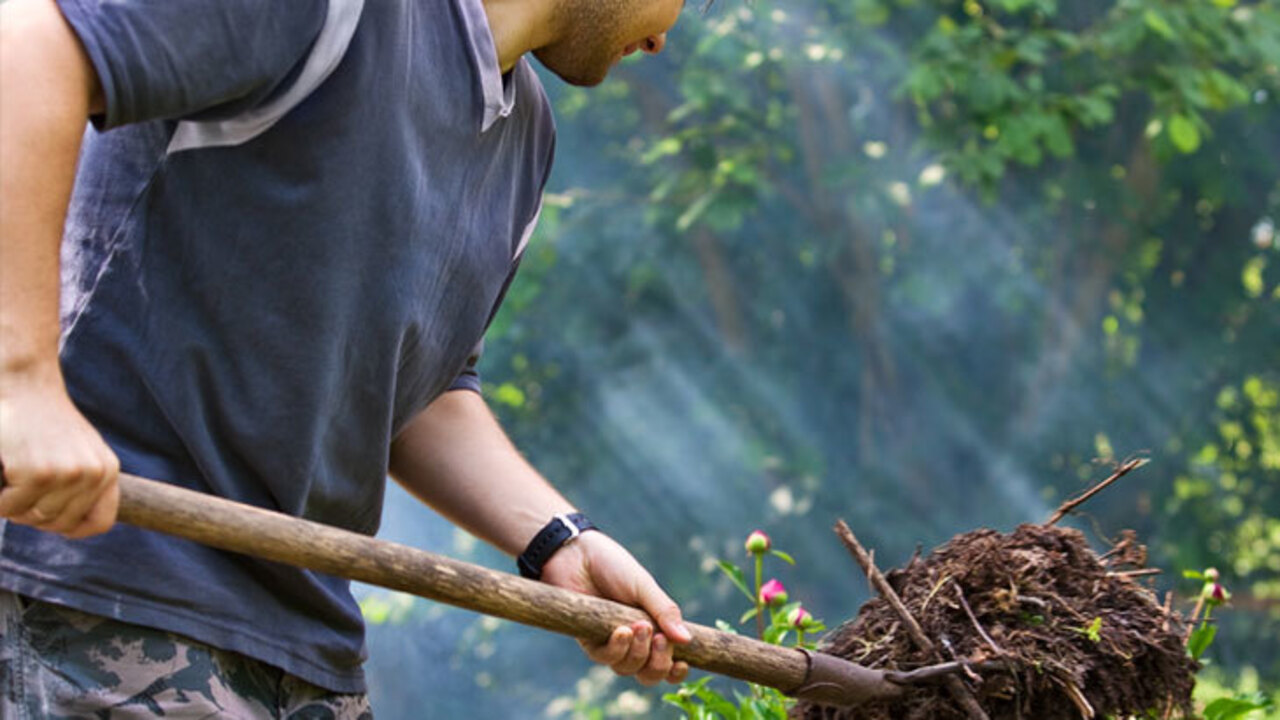
People make what is organic compost by decomposing organic materials, and it becomes a nutrient-rich fertilizer. It contains beneficial microorganisms that promote healthy plant growth and improves soil structure, water retention, and nutrient absorption. Using organic compost reduces the need for synthetic fertilizers and supports sustainable gardening practices.
Types Of Organic Composting
There are several different methods of organic composting. Traditional composting involves creating a pile or bin of organic materials and allowing them to decompose over time. Conversely, Vermicomposting uses worms to quickly and efficiently break down organic materials.
Another method is bokashi composting, a fermentation process that uses a special mixture of microorganisms to break down organic materials. Each method has its own advantages and disadvantages, so it’s important to choose the one that best fits your needs and resources.
Aerobic Composting
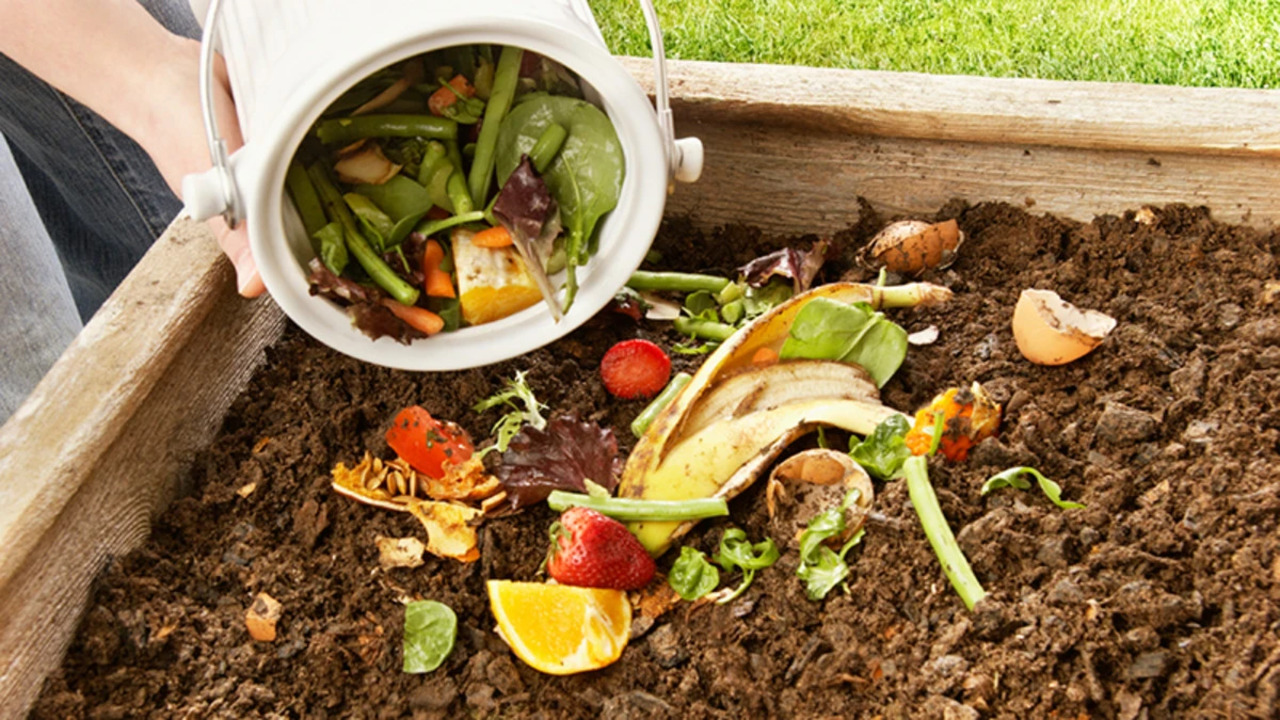
Aerobic composting is a common method used to create organic compost. Oxygen and microorganisms are utilized in this process to break down organic materials. The organic matter is mixed together in a pile or bin and regularly turned to ensure proper oxygen flow. The microorganisms in the compost pile decompose the organic matter into nutrient-rich humus, which can improve soil quality and plant growth. Aerobic composting reduces waste going to landfills and minimizes the need for chemical fertilizers. It is an environmentally beneficial way to create your organic compost.
Anaerobic Composting
Anaerobic composting is a method of creating organic compost without the presence of oxygen. It can be done in sealed containers or anaerobic digesters. This process breaks down organic matter more slowly than aerobic composting but produces high-quality compost.
The end product of anaerobic composting is rich in nutrients and beneficial microorganisms, which improves soil fertility and plant growth. Organic compost is a nutrient-rich soil amendment made from decomposed organic materials like kitchen scraps and yard waste. It is a great way to improve soil health, retain water, and provide essential nutrients for plants. Anaerobic composting is an effective technique for producing your own organic compost.
Vermicomposting
Vermicomposting is a method of composting that utilizes worms to decompose organic materials, such as food scraps and yard trimmings, into nutrient-rich compost. The decomposition process is accelerated by creating a controlled environment for worms to consume and digest this waste.
The worms break down the organic matter and release beneficial bacteria and enzymes, producing vermicompost abundant in nutrients and beneficial microorganisms. This makes vermicompost an exceptional soil amendment for gardens and potted plants. Vermicomposting is an environmentally friendly approach to recycling organic waste and reducing landfill waste.
How To Start Organic Composting
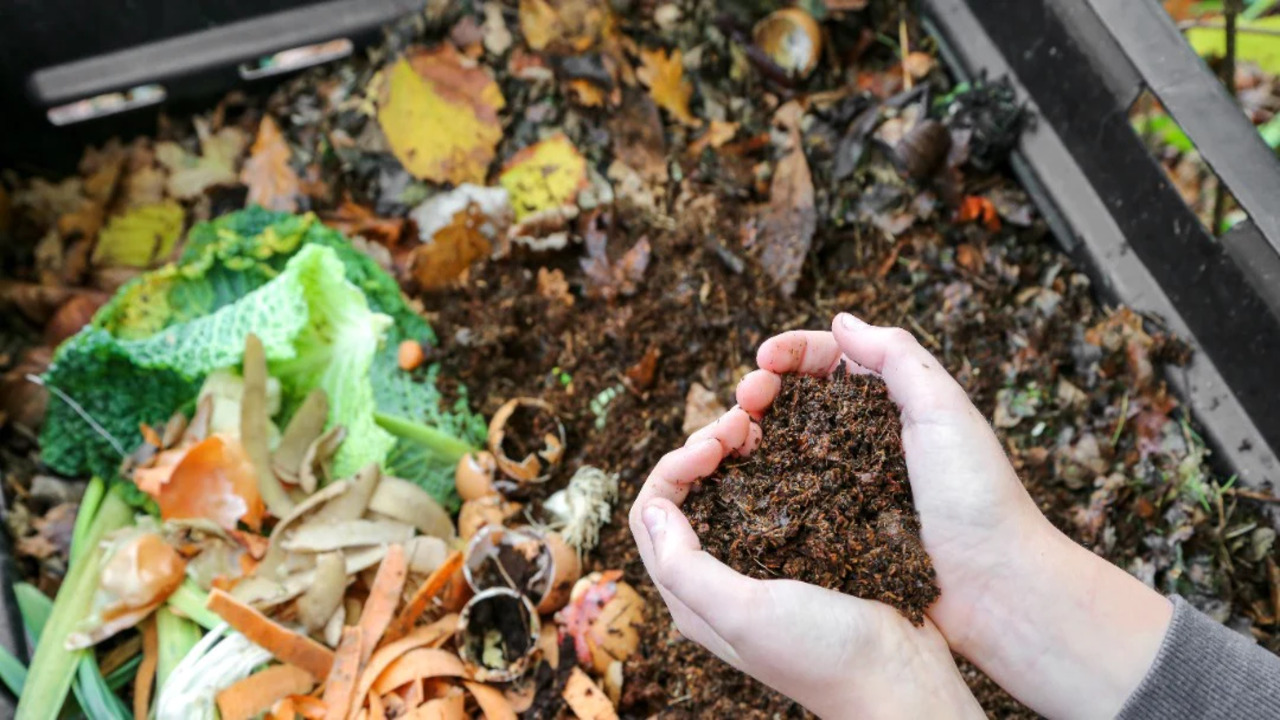
To start organic composting, gather organic materials like food scraps, yard waste, and coffee grounds. Choose a composting method that suits your space and needs, such as a compost bin or pile. For a balanced compost pile, layer your organic materials with carbon-rich materials like dry leaves or newspaper.
Regularly turn and monitor your compost to ensure proper decomposition. Use finished compost in your garden to enrich soil and promote healthy plant growth. Understanding the benefits of organic composting for your garden and the environment is essential.
Choosing A Composting Method
When it comes to choosing a composting method, there are several options available. Organic compost is created by decomposing organic materials such as food waste, yard trimmings, and manure. Traditional composting involves creating a pile or bin of organic materials, allowing them to decompose naturally over time with occasional turning.
Conversely, Vermicomposting utilizes particular types of worms to break down organic materials more quickly and efficiently. Another option is using compost tumblers or bins, which provide a contained environment for faster decomposition and easier compost pile management. Each method has its advantages and considerations, so choose the one that best suits your needs and available space.
Selecting The Right Materials
When it comes to organic composting, selecting the right materials is crucial. Organic compost is a type of fertilizer derived from decomposed plant and animal materials. To start your organic compost, you must gather appropriate materials such as fruit and vegetable scraps, yard waste, and coffee grounds.
However, avoiding using meat, dairy products, and oily foods in your compost pile is important, as they can attract pests. Properly balancing carbon-rich (brown) and nitrogen-rich (green) materials is also essential for effective decomposition. Don’t forget to turn the compost regularly to aerate it and speed up the composting process.
Building A Compost Pile
Building a compost pile is an essential step in organic composting. It involves layering organic materials such as kitchen scraps, yard waste, and leaves. Maintaining the right balance of green (nitrogen-rich) and brown (carbon-rich) materials is crucial for successful composting. Regularly turning the compost helps aerate it and speed up the decomposition process.
Over time, the organic matter in the compost pile breaks down into dark, crumbly soil that can greatly improve the fertility and health of your garden beds and potted plants. So start building your organic compost pile today and reap the benefits of nutrient-rich soil for your plants.
Maintaining Your Compost
Regularly turning the compost promotes aeration, accelerating the decomposition process. A healthy compost pile requires a balance of nitrogen-rich “green” and carbon-rich “brown” materials. It’s important to keep the compost moist but not wet to facilitate decomposition.
Avoid adding meat, dairy, or oily foods, which can attract pests and slow decomposition. Finished compost enriches the soil, providing vital nutrients for plants. You can easily maintain your organic compost by using worm composting or a compost bin. The USDA recommends home composting as a sustainable way to reduce waste and improve soil health.
Watering
Watering plays a crucial role in maintaining your compost pile. It is important to keep the compost moist but not overly saturated. Regular watering helps facilitate the decomposition process and ensures that the organic materials break down properly. When watering your compost pile, it is essential to distribute the water evenly, ensuring that all parts of the pile are adequately moistened.
However, be cautious not to overwater, as this can lead to a soggy pile and slow the decomposition process. Proper moisture levels are vital for the microbes and organisms responsible for breaking down the organic matter and creating nutrient-rich compost.
Turning
Turning compost is an essential step in the composting process. Using a pitchfork or shovel, you can mix and aerate the compost pile, ensuring proper decomposition. This action helps distribute the necessary moisture and oxygen, speeding up the composting process. Additionally, turning the compost helps break down more extensive materials more efficiently.
The turning frequency will vary depending on factors such as temperature, moisture levels, and the types of materials being composted. Remember to turn the compost regularly to maintain balance and optimize decomposition.
Adding New Materials
Maintaining a healthy and balanced composting process requires regularly adding new materials to your compost pile. Organic kitchen scraps like fruit and vegetable peels, coffee grounds, and eggshells are excellent additions as they provide valuable nutrients. To add carbon-rich materials, you can also include yard waste such as grass clippings, leaves, and small branches.
However, it’s important to avoid adding meat, dairy products, oily foods, or pet waste, as these can attract pests or introduce harmful bacteria. Remember to turn or mix your compost pile regularly to ensure proper decomposition and aeration. Additionally, aim for a consistent moisture level similar to a damp sponge.
Using Your Organic Compost
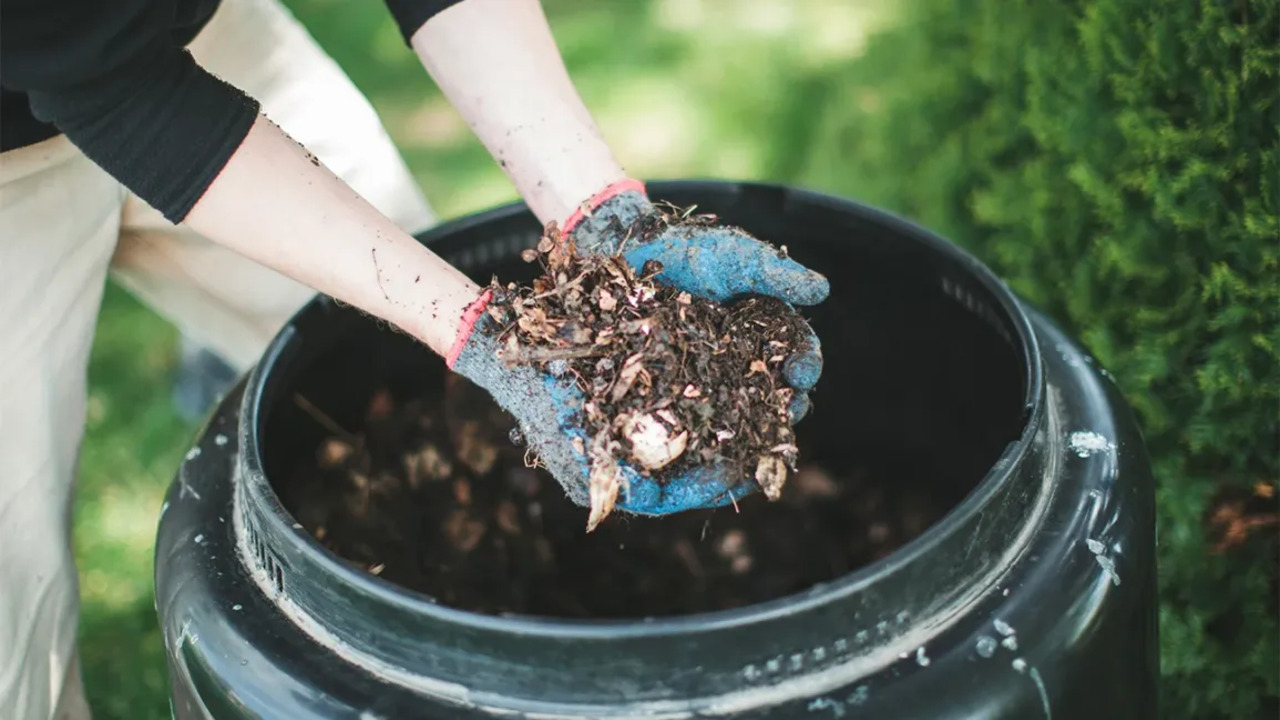
Using your organic compost is a great way to improve the health and fertility of your garden. Organic compost, created through the decomposition of organic matter, is a nutrient-rich material that provides essential nutrients to plants. By incorporating organic compost into your garden, you can enhance soil structure, promote healthy plant growth, and reduce the need for chemical fertilizers.
Additionally, organic compost helps suppress weeds and reduces the occurrence of plant diseases. There are various ways to use organic compost, such as a top dressing, soil amendment, or in compost tea to nourish your plants.
Watering
One of the benefits of using organic compost in gardening is its ability to improve soil structure and water-holding capacity. This means that with the addition of organic compost, you may need to water your plants less frequently. However, monitoring the soil moisture levels and adjusting watering accordingly is essential.
Weather conditions, plant type, and soil composition will affect watering frequency. Experts generally recommend watering deeply and infrequently to allow roots to absorb moisture fully. Avoid overwatering, leading to root rot and other plant health issues. Regularly checking the soil’s moisture level before watering is always a good practice.
Turning
Turning organic compost is an essential step in the composting process. By regularly turning the compost pile, you promote decomposition and prevent odors. This simple act allows oxygen to reach the decomposing materials, speeding up the breakdown of organic matter. You can use a pitchfork or a compost turner to easily mix and aerate the compost pile and ensure even distribution.
Turning the compost also helps maintain optimal moisture levels throughout the pile, preventing it from becoming too wet or dry. By incorporating this practice into your home composting routine, you’ll ensure the production of nutrient-rich compost for your garden.
Adding New Materials
Adding new materials is crucial in maintaining organic compost’s nutrient balance. People derive organic compost, a nutrient-rich soil amendment, from decomposed organic matter such as kitchen scraps, yard waste, and manure. Adding new materials like kitchen scraps, grass clippings, leaves, and other organic matter to the compost pile or bin can ensure a steady supply of nitrogen, carbon, and other essential nutrients for plant growth.
However, avoiding adding meat, dairy products, or oily materials that can attract pests or slow composting is important. Regularly turning or mixing the compost promotes decomposition and ensures an even distribution of nutrients.
The Benefits Of Organic Composting
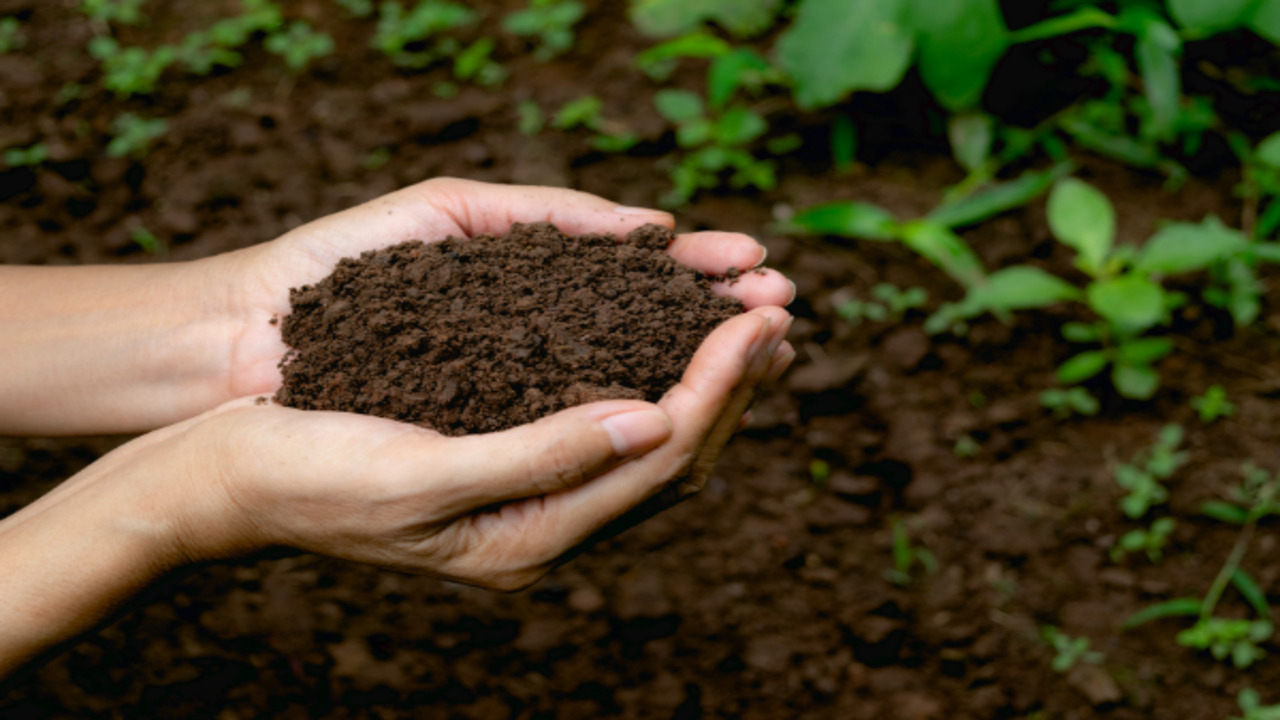
Organic compost offers a multitude of benefits for your garden and the environment. It improves soil health and fertility, providing essential nutrients like nitrogen and potassium. Using organic compost, you can reduce the need for chemical fertilizers and pesticides, creating a healthier and more sustainable garden. In addition, organic compost helps retain moisture in the soil, reducing water usage and promoting healthy root development and plant growth.
It also enhances the overall biodiversity of the soil ecosystem, creating a thriving habitat for beneficial microorganisms, worms, and other organisms. Incorporating organic compost into your gardening practices is a great way to nourish your plants naturally and create a thriving, sustainable garden ecosystem.
Troubleshooting Common Composting Problems
Troubleshooting common composting problems is essential for maintaining a healthy compost pile. Some issues you may encounter include foul odors and slow decomposition. To address these problems, it’s important to balance the carbon-to-nitrogen ratio in your compost by adding nitrogen-rich materials such as grass clippings or vegetable scraps.
Additionally, proper aeration and moisture levels are crucial for successful composting. You can ensure sufficient aeration by regularly turning or mixing the compost pile. It’s also important to monitor moisture levels and add water if necessary. Finally, you should avoid adding meat, dairy products, or oily materials to prevent pests and rodents from being attracted to your compost.
Conclusion
Organic composting is a sustainable and eco-friendly way to enrich soil and promote healthy plant growth. By understanding the different types of organic composting, such as aerobic, anaerobic, and vermicomposting, you can choose the best method for you. Starting your organic compost pile is easy with the right materials and proper maintenance techniques like watering, turning, and adding new materials.
Once your compost is ready, you can use it to nourish your garden and enjoy the benefits of healthier plants and improved soil fertility. If you encounter common composting problems, don’t worry – we’ve covered you with troubleshooting tips. We have provided bulk information on what is organic compost and hope our information was helpful from your perspective.
Frequently Asked Questions
[rank_math_rich_snippet id=”s-d5a8f5ad-bc0c-4f29-9e28-444363e60241″]

I am passionate about home engineering. I specialize in designing, installing, and maintaining heating, ventilation, and air conditioning systems. My goal is to help people stay comfortable in their homes all year long.

